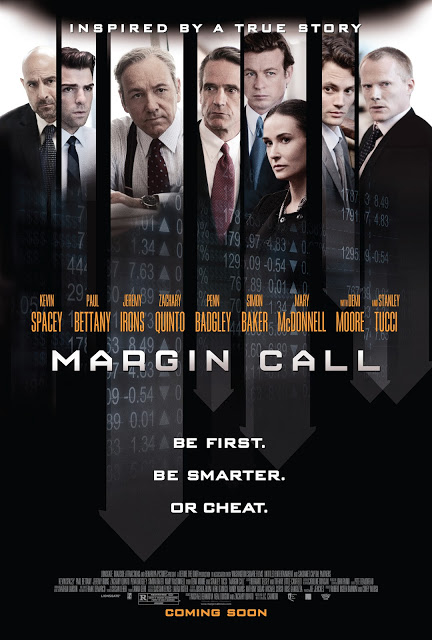 |
| Another Earth (2011) |
This is a guest post from Diana Fakhouri.
I haven’t cracked open a math book since 2005, so excuse me for glossing over Another Earth‘s astrophysical ambiguities. Fortunately, the film is less concerned with the space/time continuum than May/December romance, leaping from Orwellian tragedy to Nicholas Sparks rom-dram in under 100 minutes. Despite its flippant scientific disregard, Mike Cahill (director) and Brit Marling’s (writer/producer/star) interpretation of the archetypal parallel universe artfully weighs the millenial dilemma: to set forth on a predestined path, or forge a wild journey through the unknown? Another Earth never commits to either, but forces Brit Marling’s Rhoda to wade in the Styx between the two.
Like all good sci-fi flicks, Another Earth opens at a high school kegger. Rhoda is a Connecticut senior heading to MIT’s astrophysics program and celebrating her upcoming graduation. I’m not sure how typical Rhoda – all waifish, golden-haired, middle-class, white – would be of the MIT student body, but let’s grant them some artistic license, shall we? After partying late into the night, a dazed Rhoda climbs into the driver’s seat and engrosses herself in DJ Flava’s highly scientific radio report on the discovery of another Earth (dubbed Earth 2), a mirror image of our planet inhabited by carbon copies of the population. The drunk teen tempts fate, craning her neck to catch a glimpse of the mysterious planet. Seconds later, Cahill offers a striking bird’s eye view of her head-on collision with Yale composer John Burroughs’ vehicle, leaving him in a coma and killing his pregnant wife and child.
 |
| Brit Marling as Rhoda Williams |
Fast forward four years, and Rhoda’s skittish parents pick her up from a correctional facility, treading lightly and scolding her brother for asking what it’s like “on the inside.” Rhoda’s yellow locks have lost their luster, lying in tangled knots against her prison-issue garb. At home in her plaid wallpapered bedroom, she gazes at model planets descending from the ceiling and fingers glittery make-up tins lining the dresser. Rhoda finds work as a janitor at her old high school, ignoring pleas from a job counselor to accept more challenging work better suited to her intellect.
Since DJ Flava’s announcement, the space race has been running overtime. An international team of astronauts and scientists will soon blast off on the inaugural trip to Earth 2, and a wealthy benefactor offers a delightfully quaint essay contest to win a spot on the crew. Rhoda pens a thoughtful entry likening her outcast status to the criminals of yesteryear who ventured out and populated the unknown, earning her a spot on the manifest.
The dichotomy between Rhoda’s life plan and unexpected reality are highlighted by a chance encounter in a bodega. Rhoda chats with a former male friend stocking up on champagne to celebrate his acceptance to business school, wearing her shame on her sleeve while the future MBA candidate infers her failures. Her embarrassment speaks volumes, revealing that she feels unable to rejoin her peers in the rat race.
Enter obligatory romantic entanglement.
In an attempt to assuage her conscience, Rhoda tracks down John and learns that he woke from the coma and returned to his home on outskirts of town. She heads to meet him, absent a plan of action. Stunned by the drunk, disheveled man who emerges from the squalor inside, Rhoda swallows her confession and concocts a lie that allows her to remain anonymous while helping him get his life back on track, though inextricably entangling herself in it.

 |
| Rhoda (Marling) and John (William Mapother) |
The sexual relationship that develops between John and Rhoda brutally mars the film, relegating an insightful, ethereal drama to a Lifetime after-school special. It feels wrong; it feels unnecessary. While Rhoda ostensibly consents, it’s clear that she feels she owes a debt to John she can never repay. Once John takes note of her sexually, Rhoda’s femininity blossoms on screen: she sheds the drab janitor’s jumpsuit and haphazard braids for flowing skirts, drapey cardigans, and glossy Middleton hair. Their transition from awkward, wounded companions to passionate lovers feels forced, and prevents Rhoda from piecing her world back together. The safety, albeit forged, of her relationship with John further separates her from a normal life. To make matters worse, when she finally confesses her part in the death of his wife and child, John banishes her from his life.
In a not-so-shocking (spoiler alert!) twist, Rhoda discerns that the reflexivity of the two planets was interrupted at the moment of discovery, possibly precluding the fatal accident from affecting the John and Rhoda of the other Earth. In a final act of penance, Rhoda offers John her passage on the maiden voyage to Earth 2, hoping to reunite him with his family. Shortly after, she comes face to face with her own persona from the alternate universe, clad in the twenty-something yuppy uniform that corroborates the broken parallel hypothesis.
The bold cinematography carries the film. While it’s a gorgeous take on sci-fi, Deep-Impact-meets-2001: A-Space-Odyssey-meets-Instagram isn’t doing the modern heroine any favors. Rhoda is unable to overcome the tragic accident that throws her life off track, and the final scene intimates that the unblemished Earth 2 Rhoda is as much a stranger to her as her friend from the bodega.
Diana Fakhouri earned her BA in English Literature from The College of William and Mary in 2009. She lives in Richmond, Virginia and has never turned down a Mimosa. Check her out on Twitter and Tumblr.







